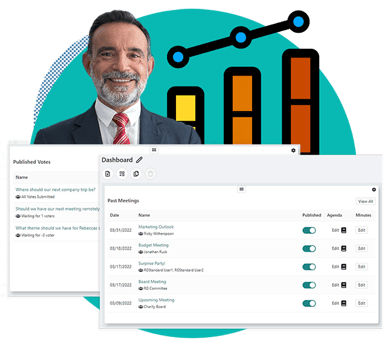
An interesting trend is taking place between hedge funds and environmental, social, and governance investing. While these two entities seem to fall on the opposite ends of the corporate spectrum, a symbiotic relationship is emerging with big benefits for investors, socially responsible corporate initiatives, and ultimately the planet. Hedge fund corporate governance is the driving force behind many of the world’s largest companies to start developing plans for ESG and enhanced reporting.
The first step in realizing how these two very different entities can coexist and help each other to thrive is based on the flexibility of hedge fund corporate governance. Harvard Law reports that the scrutiny over hedge fund corporate governance is hyperfocused. Since the financial crisis of 2008, hedge fund corporate governance is now concentrated on transparency, operational practices, and how directors monitor fund managers.
While hedge fund corporate governance is similar to that of mutual funds, there are a few differences to note. According to the SEC, hedge funds have a more flexible investment strategy. Unlike mutual funds, hedge fund corporate governance is not subjected to some of the regulations designed to protect investors. Managers are only required to submit reports to the SEC if their assets reach a certain amount. However, fiduciary duty is still at the forefront of hedge fund corporate governance. The SEC holds all managers and directors accountable to the same prohibitions against fraud.
Hedge Fund Corporate Governance Tackles a Millennial Market
These differences in hedge fund corporate governance, in fact, make these funds an ideal catalyst for mainstream ESG investing. Because hedge funds invest in all kinds of markets, their reach is far and wide. Hedge funds are also driven by their investors, and the influx of millennial investors and the desire to ignite positive changes through industry is a priority of many millennial investors. The influx of millennial consumers is also a reason for investors to push for ESG initiatives from their portfolio companies. Millennials make up the largest consumer base in the world and also a driving force for change.
CNBC recently reported that Pernod, the world’s second-biggest spirits group, just outlined a roadmap for green initiatives due to pressure from investor Elliott. “This is partly to win over ‘Millenial’ customers who are often keen to help the environment, and to attract investments from funds that specialize in putting trillions of dollars into companies screened for having good ethical criteria,” says CNBC.
Pernod’s roadmap outlines eight pledges which include preserving land, saving water, and cutting down on waste and carbon emissions. They are using resources to fight alcohol abuse and promote gender balance throughout management. However, this is just one example of how hedge fund corporate governance is fueling this relatively new investment market.
Due to investor demand, hedge fund corporate governance is beginning to embrace the change and demand for ESG investing. It’s no secret that hedge funds have a knack for innovation and they’re overcoming some of the largest barriers associated with ESG investing. In particular, goal reporting and leveraging the technological innovations of portfolio companies to drive results.
Hedge Fund Corporate Governance Pushing for Standardized Reporting
According to a recent study conducted by the Alternative Investment Management Association and the Cayman Alternative Investment Summit, hedge funds have at least $59 billion in assets under management specifically allocated towards responsible investing. With this number growing, hedge fund corporate governance professionals are pushing for more standardized reporting on ESG.
 In October of 2018, investors and associated organizations submitted a petition to the SEC amidst ESG reporting frustrations. “The petition is pushing the SEC to design a framework for companies to disclose ‘specific, much higher-quality ESG information’ than is currently required,” ThinkAdvisor reports. The petition also states that it’s time for the SEC to begin regulating this area of reporting for companies.
In October of 2018, investors and associated organizations submitted a petition to the SEC amidst ESG reporting frustrations. “The petition is pushing the SEC to design a framework for companies to disclose ‘specific, much higher-quality ESG information’ than is currently required,” ThinkAdvisor reports. The petition also states that it’s time for the SEC to begin regulating this area of reporting for companies.
With the lack of information, hedge fund corporate governance professionals are finding it difficult to guide their managers when investing in responsible companies. Increased reporting on ESG initiatives will help responsible and activist investing more transparent with comparable results.
Leveraging Fund Portfolio Companies to Drive Results
Hedge fund corporate governance professionals are leveraging their innovative approach to investing when tackling ESG data analysis. The scarcity and reliability of ESG data are troubling, but technology presents a potential solution to this problem. “Fortunately, hedge funds are world leaders in applying technology to asset management,” says Responsible Investor.
Hedge funds are using some of the world’s leading computer scientists to help track and measure ESG data. “This ‘big data’ approach is uniquely well-suited to hedge funds, many of which are already employing powerful statistical and computational data to sift through mountains of information and determine what is or isn’t a material ESG risk or opportunity,” says Responsible Investor.
We are still in the early days of ESG investing, but it’s already apparent that hedge fund corporate governance professionals are a driving force for responsible investments and changing reporting standards. They will be a key player in the push for making ESG investing a more mainstream practice, creating a strong relationship between these two unlikely institutions.
Other posts you might be interested in
View All PostsSubscribe to email updates
Get updates delivered directly to your inbox.
 Board Management Software for Better Governance
Board Management Software for Better Governance Govenda Brochure
Govenda Brochure

